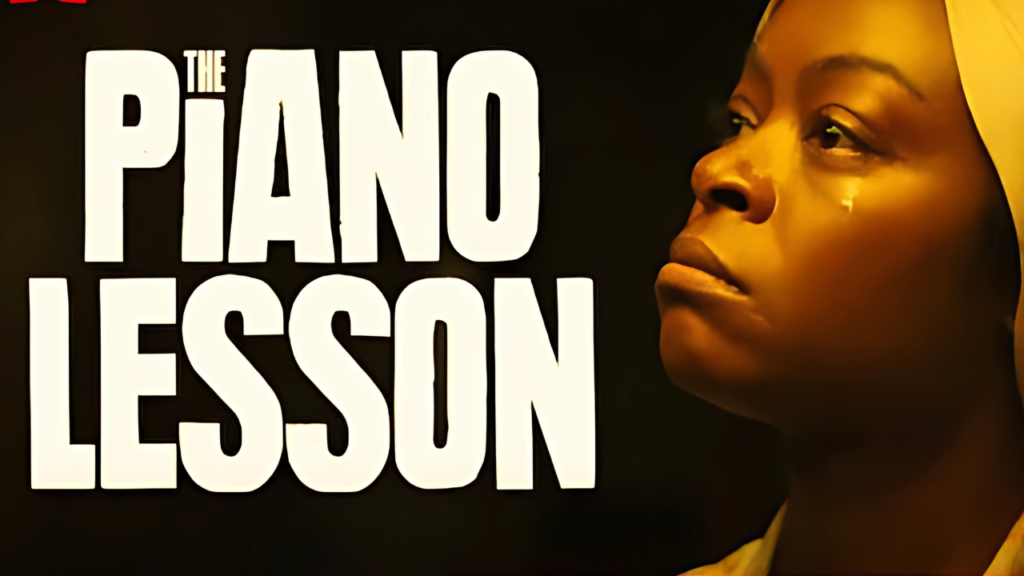A brewing battle over the fate of an heirloom piano threatens to tear a family apart in this drama based on August Wilson’s Pulitzer Prize winning play.

Premiering at the Telluride and Toronto International Film Festivals, The Piano Lesson marks another outstanding cinematic adaptation of August Wilson’s Pulitzer Prize winning plays. Directed by Malcolm Washington and bolstered by an exceptional cast, the film reimagines Wilson’s 1990 classic for the big screen, delving deep into themes of legacy, history, and the complex dynamics of family. Following in the footsteps of acclaimed adaptations like Fences and Ma Rainey’s Black Bottom, The Piano Lesson is poised for a successful awards season run, thanks to its powerful storytelling and riveting performances.
A Tale of Family and Legacy
Set in 1930s Pittsburgh during the aftermath of the Great Depression, The Piano Lesson centers on the Charles family, particularly siblings Berniece (Danielle Deadwyler) and Boy Willie (John David Washington). At the heart of their conflict is a family heirloom a piano intricately carved with depictions of their ancestors, symbolizing both the family’s pride and their painful history.
Boy Willie, an ambitious and restless dreamer, sees the piano as a means to achieve a better future. He arrives from Mississippi with a business proposition: sell the piano to fund the purchase of land once owned by their ancestors’ slave owner. For Berniece, however, the piano represents far more than monetary value; it embodies their family’s struggle, sacrifice, and resilience. The clash between their opposing views ignites a poignant debate about the balance between honoring the past and forging a path forward.
Powerful Performances and Stellar Ensemble
The film’s emotional core lies in its exceptional performances. John David Washington captures Boy Willie’s energy, determination, and internal conflict, while Danielle Deadwyler delivers a career defining performance as Berniece. Deadwyler portrays a grieving widow and single mother grappling with her family’s history and her own limitations. Her emotionally charged monologues and climactic scenes provide some of the film’s most memorable moments, firmly placing her as a contender for major awards.
Samuel L. Jackson, as Uncle Doaker, brings gravitas and wisdom to the narrative, offering a steadying presence amid the family’s turmoil. Supporting performances from Ray Fisher, Michael Potts, and others enrich the story, adding layers of humor, tension, and camaraderie.
Bringing the Past to Life
Malcolm Washington’s direction masterfully blends the play’s intimate, dialogue heavy roots with cinematic techniques that expand its scope. Utilizing flashbacks, musical sequences, and dynamic camera work by cinematographer Michael Gioulakis (Us, It Follows), the film brings the history of the Charles family vividly to life. The hauntingly beautiful rendition of the prison work song “Berta Berta” is a standout, evoking both sorrow and resilience.
The score by Alexandre Desplat adds another layer of emotional depth, enhancing key moments with a haunting yet hopeful musical palette.
A Triumph of Storytelling
The Piano Lesson is more than a film it’s a meditation on legacy, sacrifice, and the enduring strength of family. It confronts the tension between preserving history and embracing progress, asking audiences to consider what they hold onto and why.
With its compelling performances, exquisite craftsmanship, and timely themes, The Piano Lesson is a tour de force that cements August Wilson’s legacy as one of America’s most profound storytellers and signals a bright future for director Malcolm Washington. This film isn’t just a contender for awards it’s a lasting contribution to cinema.
